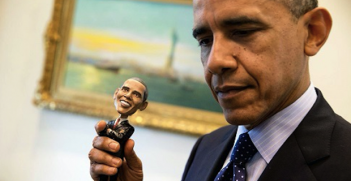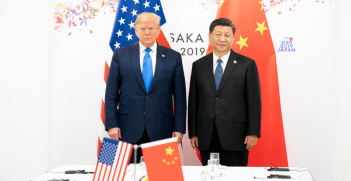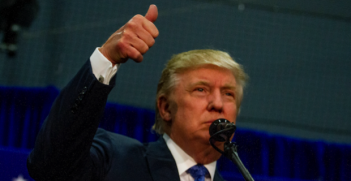Malaysian Parliamentary Democracy in Crisis

Malaysia is currently in the midst of one of the biggest financial corruption scandals in its history. Malaysia’s future as a democracy is now being called into question.
The Australian media has at last become fascinated by the financial scandal engulfing the Malaysian prime minister, Najib Razak, who refuses to explain the US$681 million deposit in his personal bank account or the alleged misappropriation of some $US4 billion from the state investment fund (1MDB), which he founded and of whose advisory board he was chairman. In most parliamentary systems derived from Westminster the Parliament would enjoy some capacity to keep the executive accountable in such circumstances but, in Malaysia, Parliament has been rendered impotent at almost every turn. The Opposition leader is again in jail on a sodomy charge and the dominant Malay political party, UMNO, has allowed its leader to treat the ground-rules of parliamentary democracy with contempt, especially at election time – to consolidate its dominance over a coalition of multi-racial Opposition political parties.
The prime ministership of Dr Mahathir (1981–2003) began the decline, notably with politicisation of the judiciary, excessive use of the Internal Security Act and a successful criminal prosecution of the Opposition leader, Anwar Ibrahim (Mahathir’s former deputy), on possibly trumped-up sodomy charges. During the current crisis Najib has moved further than Mahathir ever did in muzzling parliamentary and key executive agencies, including the Parliamentary Public Accounts Committee and the Anti-Corruption Commission. Moreover, the Attorney-General who began to make progress with an investigation last year was made to retire “on health grounds” and his successor immediately cleared the Prime Minster of any wrong doing.
What avenues of persuasion or coercion to call Najib to account are still available? Investigations into the complex web of financial transfers by no fewer than five foreign governments may eventually make Najib’s position untenable. In the meantime Dr Mahathir has resigned from UMNO and joined forces with opposition groups to seek a million signatures on a petition for Najib’s removal, to be submitted to the King (the Yang di Pertuan Agong). The Malaysian constitution, drafted in 1956 by an expert Commonwealth commission which included Australia’s Sir William McKell, does confer a discretionary power on the head of state, but Article 40 denies the Agong the authority to dismiss the prime minister. There would be nothing, however, to prevent the Agong from urging the prime minister to stand down, and if the Agong was rebuffed he could dissolve Parliament. The prime minister loses membership of Parliament if he is convicted of a criminal offence and is jailed for a year or heavily fined.
The Conference of Rulers (all the Sultans and state Governors) has confronted a prime minister once in the past when, in 1983, they refused to approve a controversial bill submitted by then Prime Minister Dr Mahathir; but the issue then was not corruption. During the current crisis the only ruler to address publicly the current scandal has been the Sultan of Perak, Dr Nazrin Shah, an articulate graduate of Oxford and Harvard’s Kennedy School of Government. Nazrin is Patron of the Malaysian Anti-Corruption Foundation and at its recent conference in Kuala Lumpur he conceded that his country had sunk into a morass of corruption, though without mentioning Prime Minister Najib by name. The Malaysian print media reported the Sultan’s speech, but in that same week the newspapers were far more interested in slavishly reporting verbatim the lengthy speeches of Prime Minister Najib to the annual assembly of UMNO, none of which touched on the missing millions.
In recent days Dr Mahathir has called for foreign intervention in the Malaysian crisis, singling out Australia specifically as a country whose interests are affected by the current scandal. Not surprisingly, no senior Australian government spokesman has so far publicly criticised the beleaguered Malaysian prime minister. Najib is seen as a reliable friend to Australia, and government-to-government relations are both important and close, both in economic and security terms.
Are there any international instruments of persuasion available to address the Malaysian scandal? The UN’s Convention against Corruption, operative since 2005, contains no effective machinery to enforce compliance. In recent decades the Commonwealth of Nations has on several occasions pronounced judgment on abuses of internal governance in member states, but the targets have generally been military coups – hence the suspension of Nigeria, two suspensions of Pakistan and most recently two suspensions of Fiji.
Nevertheless, the quite far-reaching Commonwealth Charter, adopted in 2013, makes specific and hard-hitting references to the need to combat corruption. Somewhat ironically, the Commonwealth’s Eminent Persons Group, which drafted the Charter, was chaired by the then Malaysian Prime Minister, Tun Abdullah Badawi, Najib’s predecessor. Article 6 of the Charter says: “We reiterate our commitment to promote good governance through the rule of law, to ensure transparency and accountability and to root out, both at national and international level, systemic and systematic corruption”.
Although it’s unlikely that a friendly Commonwealth state would be eager to initiate collective discussion of Malaysia’s current scandal, it might be open to an aggrieved political party or parliamentary group to lodge a formal complaint with the Commonwealth Secretariat in London. The Commonwealth Secretary-General would then surely have little choice but to refer the complaint to the Ministerial Action Group, a sitting panel of Commonwealth foreign ministers, usually chaired by a head of government.
Malaysia is a sophisticated if heavily flawed polity and until recently boasted a fast-growing economy, attracting massive foreign investment. Its reduced ranking on the international corruption index and unflattering media coverage across the world is surely distressing to millions of its educated middle-class citizens. Meanwhile the key opposition parties have re-grouped and re-named themselves the Alliance of Hope. At least it is not the Alliance of Despair!
Peter Boyce AO is an Adjunct Professor in the University of Tasmania’s Politics and International Relations Program and President of AIIA Tasmania Branch. He has written on Malaysian affairs across several decades. He was guest speaker at a conference of the Malaysian Anti-Corruption Foundation in December 2015. This article is published under a Creative Commons Licence. It may be republished with permission.





